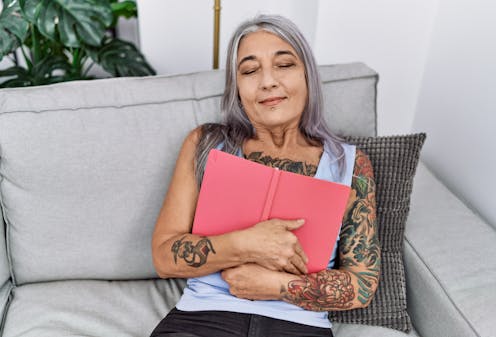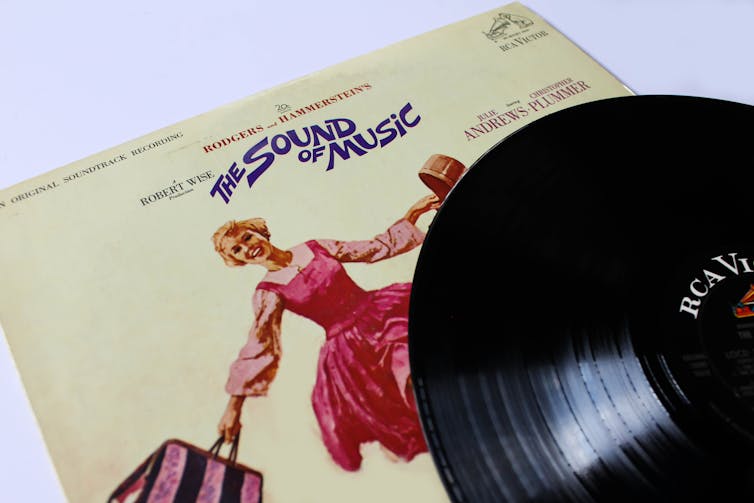
The cost of living crisis has left many people struggling to afford basic necessities such as food and heating for their homes. On the other hand, the top ten richest men in the world doubled their wealth during the COVID pandemic while 99% of people became worse off.
While this is a comparison of two extremes, many people attempt to “keep up with the Joneses” – looking at what the people around them own and striving to afford the same things. Comparing material wealth and resources to those around you is even more common when others are better off. It’s hard not to wonder why someone else has a nicer car or better clothes.
Lots of research supports this tendency, including our own. For example, when we asked American people to watch a video about research on income inequality in their own country, unsurprisingly, it made them think about their own wealth and how it compares to those around them.
And we found that it doesn’t matter how wealthy a person is. Relatively well-off people still tend to look upwards in this way. There is nearly always someone who has more money or owns a better car, a bigger house or the latest gadgets.
But while money may not buy you happiness, our research shows that a favourite possession can actually help to make you feel happier when facing income inequality. Thinking about a single treasured possession – even something small like a favourite book gifted by a friend or a keepsake from a trip – can help prevent these feelings of deprivation and actually boost your wellbeing.
We used the Gini coefficient – a common measure of income inequality – to analyse more than 31,000 Instagram posts from 138 countries. We found that posts tend to convey less happiness in places with more income inequality (i.e., when the Gini coefficient of the location of the post increases).
We focused on posts that were about favourite possessions (that used hashtags such as #favouritething, #favthing), comparing these with posts about favourite things in general, that is things that aren’t “owned”. The latter posts used hashtags such as #fashion or #favoritepeople.
Posts that used hashtags about general consumption and favourite things that aren’t “owned”, such as music or friends, were typically less happy and posted in areas with more income inequality. But when we looked at posts that used hashtags about favourite possessions, such as #favouritething or #favthing, we found there was a weaker relationship with income inequality.
So whether a post was happy or not wasn’t linked to the equality of the area it was posted in. These posts about favourite possessions were therefore less affected by income inequality.
This means that encouraging people to think differently about things they already own could help some cope better with inequality. Rather than focusing on how much you own, which tends to exacerbate social comparison and undermine happiness, focus instead on your favourite possessions. Our research indicates that people who do this tend to make fewer material comparisons, and are happier as a result.

Simply remember your favourite things
A treasured possession doesn’t even have to be particularly expensive. From a memento purchased on a trip abroad, to your grandmother’s embroidered cushion, a football jersey that reminds you of your old school teammates, or even that tattered t-shirt of your favourite band, such items can feel priceless to their owners because they are unique and their value transcends any kind of price.
In a separate multi-country study using an online questionnaire, we asked 1,370 participants from China, India, Pakistan, the UK, Spain, Russia, Chile and Mexico to describe either every item of clothing they had recently purchased, or a single favourite item of clothing. After participants described these things, we asked them about their wellbeing, as well as their perception of income inequality in their country.
Those who thought about recent clothing purchases reported lower wellbeing when thinking about income inequality in their country. In comparison, those who talked about a single favourite piece of clothing were not as affected by the income inequality they perceived around them.
Three more online experiments with over 2,000 participants revealed that when people are reminded of their favourite possessions they feel less affected by income inequality because they are making fewer material comparisons.
In one of these studies, we found that merely describing a favourite possession made people less likely to compare their wealth to that of others. When people stopped making these comparisons they were happier – even those living in places with more income inequality.
#FavouriteThing
Our research shows the benefits of focusing on a few favourite things that we own, rather than thinking about the amount of possessions we have and what else we need to “keep up with the Joneses”.
Hashtag trends like #ThrowbackThursday encourage people to post photos on certain themes. In a similar vein, encouraging more people to post photos of their favourite possessions using hashtags like #FavouriteThing could do a lot to help boost happiness during the cost of living crisis.
Income inequality is rampant and the cost of living crisis has only made its effects worse. But we all possess something dear to us that can keep us from comparing ourselves to others and help protect our wellbeing in this difficult economic environment.
Our research has been partly funded by the HKUST Institute for Emerging Market Studies with support from EY (IEMS17BM04; IEMS 19BM04), and the Hong Kong Research Grants Council (GRF 16507119).
Amy Dalton receives funding from the Hong Kong Research Grants Council. This research project is partially supported by this funding.
Anirban Mukhopadhyay receives funding from the Lifestyle International Endowed Professorship in Business at the Hong Kong University of Science and Technology. This research was partially supported by this endowment.
This article was originally published on The Conversation. Read the original article.







